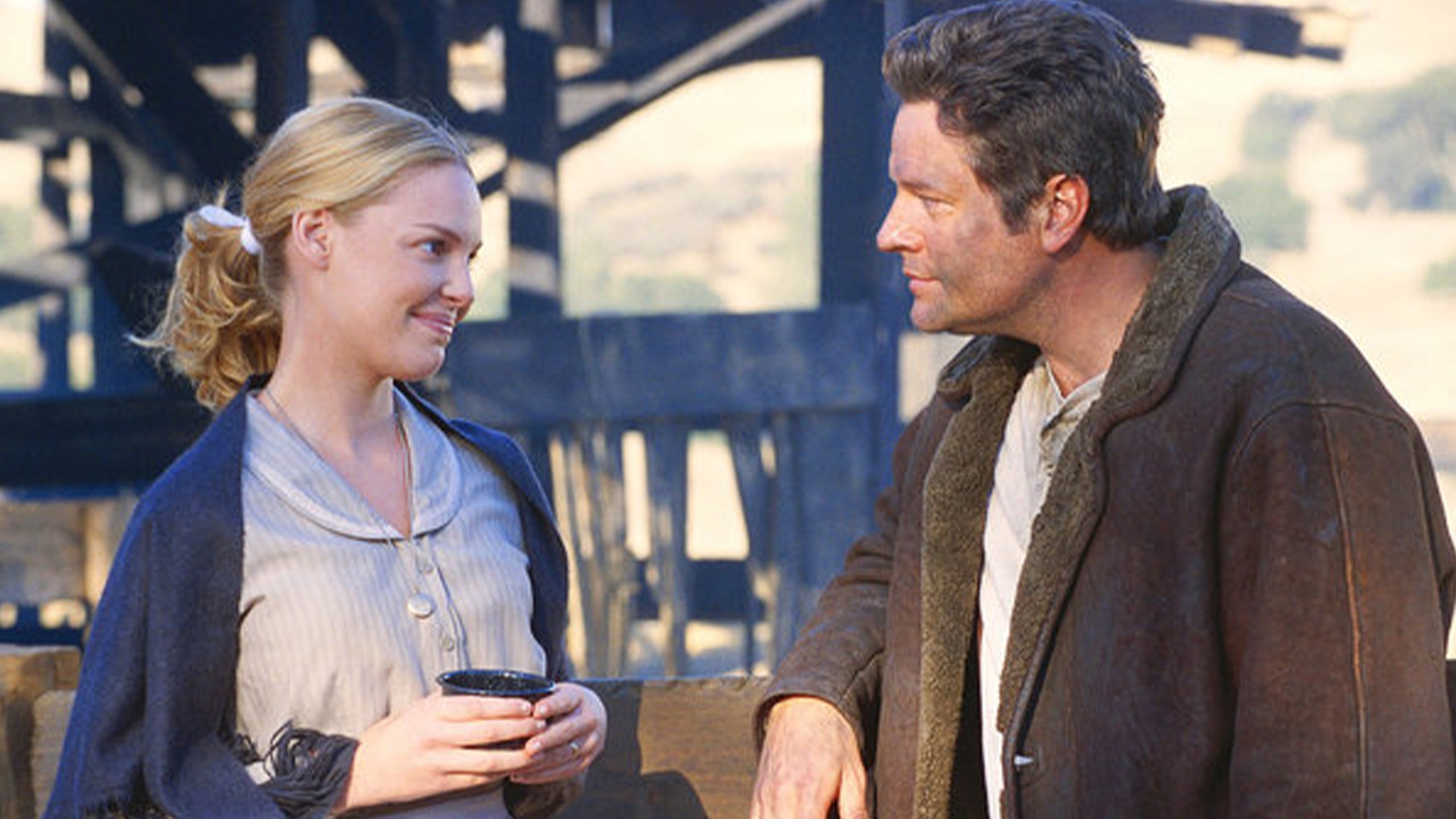Love Comes Softly is a made-for-TV historical drama directed by Michael Landon Jr., based on the novel by Janette Oke. Set in the American frontier during the 19th century, the film tells a tender story of love, loss, and healing, grounded in themes of faith and resilience.
The film follows Marty Claridge (Katherine Heigl), a young woman traveling west with her husband in search of a new life. Tragedy strikes early when her husband dies suddenly, leaving Marty alone and vulnerable in a rugged, unfamiliar land. With winter approaching and no means to support herself, she agrees to a marriage of convenience with Clark Davis (Dale Midkiff), a widowed farmer raising his young daughter, Missie.
What begins as a practical arrangement slowly blossoms into a story of emotional growth. As Marty adjusts to her new life, she forms a bond with Missie, and over time, feelings of respect and affection grow between her and Clark. Both characters are still grieving in different ways, and the film explores how love can come unexpectedly, not as passion at first sight, but as trust built through shared hardship and kindness.
Katherine Heigl delivers a strong, sensitive performance, portraying Marty’s transition from sorrow and resistance to acceptance and quiet strength. Dale Midkiff brings warmth and gravity to Clark, a man of quiet faith and patience. Their chemistry is subtle, fitting the film’s tone of quiet transformation.

Love Comes Softly is beautifully shot, using wide, peaceful landscapes and simple but effective set design to evoke the 1800s American frontier. The pacing is slow but purposeful, reflecting the rhythms of rural life and emphasizing emotional depth over dramatic twists.
While it’s clearly a faith-based film, its messages about trust, healing, and finding unexpected blessings are universally resonant. It’s especially appealing to viewers who appreciate clean, family-friendly storytelling and historical romance.
In conclusion, Love Comes Softly is a heartfelt, slow-burning drama that captures the strength of the human spirit and the quiet power of enduring love. It’s the kind of film that comforts rather than excites, leaving a warm impression long after the credits roll.



